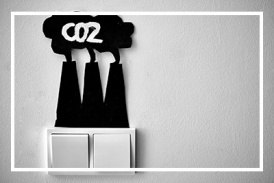Less Cancer Calls on Congress to Exercise Compassion as DOGE Cuts Cancer Research and Prevention Initiatives
“These programs are being slashed under the guise of ‘efficiency’ and ‘overhaul,” said Bill Couzens, founder of Less Cancer. “What’s replacing them is not thoughtful innovation or well-researched alternatives. It’s uncertainty, conspiracy-laced rhetoric and a daily dose of gaslighting in trying to convince Americans that science is optional, that expertise is elitism and we can somehow build a healthier nation while tearing down the very foundations that make health possible.”
On a blog on Medium, Couzens further outlined the impact that the Department of Government Efficiency (DOGE) cuts are having, and will have, on cancer research, prevention and overall health. “Not all harm comes loudly,” he said. “Sometimes, it is hidden in polite language—words like ‘efficiency,’ ‘streamlining,’ or ‘fiscal discipline.’ But, when these words lead to cuts in cancer research, slashed disease prevention programs and the unraveling of the very systems meant to protect those in need, we must call it what it is: a quiet, dangerous form of cruelty.”
Couzens urges all Americans to write their Congressional leaders and protest these cuts. “This isn’t leadership, it’s abandonment disguised as reform,” cautions Couzens. “Nearly every American family has faced cancer. We will not be able to effectively fight this disease without these essential agencies intact.”
Links to Congressional offices can be found in the blog. “Please write today. Millions of lives depend on this,” Couzens added.
For more information on Less Cancer, visit www.lesscancer.org.
About Less Cancer
Founded in 2004 by Bill Couzens, the Next Generation Choices Foundation is a 501(c)(3) public charity known more widely as “Less Cancer.” The organization works to educate the public, create proactive public policies, and offer continuing education credit to physicians, nurses, and public health professionals regarding cancer and cancer prevention. For more information, visit www.lesscancer.org.
Bill Couzens
Less Cancer
email us here
Visit us on social media:
LinkedIn
Instagram
Facebook
X
Legal Disclaimer:
EIN Presswire provides this news content "as is" without warranty of any kind. We do not accept any responsibility or liability for the accuracy, content, images, videos, licenses, completeness, legality, or reliability of the information contained in this article. If you have any complaints or copyright issues related to this article, kindly contact the author above.
Lung Cancer & Asbestos Victims Center Urges the Family of a Plumber Who Has developed Lung Cancer and Who Prior to 1983 had Exposure to Asbestos to Call About Compensation-It Might Be Hundreds of Thousands of Dollars
RICOVR Showcases Breakthrough Saliva-Based Testing Device at First Look Event
Hydrogen Hubs Market to Soar USD 9.9 Billion by 2035, Powering a Decade of Clean Energy Innovation | Report by FMI
Więcej ważnych informacji
 Jedynka Newserii
Jedynka Newserii

 Jedynka Newserii
Jedynka Newserii

Ochrona środowiska

A. Bryłka (Konfederacja): Ograniczenie emisyjności nie musi się odbywać za pomocą celów klimatycznych. Są absurdalne, nierealne i niszczące europejską gospodarkę
W lipcu br. Komisja Europejska ogłosiła propozycję nowego celu klimatycznego, który zakłada ograniczenie emisji gazów cieplarnianych o 90 proc. do 2040 roku w porównaniu do stanu z 1990 roku. Został on zaproponowany bez zgody państw członkowskich, w przeciwieństwie do poprzednich celów na 2030 i 2050 rok. Polscy europarlamentarzyści uważają ochronę środowiska i zmiany w jej zakresie za potrzebne, jednak nie powinny się odbywać za pomocą nieosiągalnych celów klimatycznych.
Polityka
Dramatyczna sytuacja ludności w Strefie Gazy. Pilnie potrzebna dobrze zorganizowana pomoc humanitarna

Według danych organizacji Nutrition Cluster w Strefie Gazy w lipcu br. u prawie 12 tys. dzieci poniżej piątego roku życia stwierdzono ostre niedożywienie. To najwyższa miesięczna liczba odnotowana do tej pory. Mimo zniesienia całkowitej blokady Strefy Gazy sytuacja w dalszym ciągu jest dramatyczna, a z każdym dniem się pogarsza. Przedstawiciele Polskiej Akcji Humanitarnej uważają, że potrzebna jest natychmiastowa pomoc, która musi być dostosowana do aktualnych potrzeb poszkodowanych i wsparta przez stronę izraelską.
Polityka
Wśród Polaków rośnie zainteresowanie produktami emerytalnymi. Coraz chętniej wpłacają oszczędności na konta IKE i IKZE

Wzrosła liczba osób, które oszczędzają na cele emerytalne, jak również wartość zgromadzonych środków. Liczba uczestników systemu emerytalnego wyniosła w 2024 roku ponad 20,8 mln osób, a wartość aktywów – 307,5 mld zł – wynika z najnowszych danych Urzędu Komisji Nadzoru Finansowego (UKNF). Wyraźny wzrost odnotowano w przypadku rachunków IKE i IKZE, na których korzyść działają m.in. zachęty podatkowe. Wpłacane na nie oszczędności są inwestowane, a tym samym wspierają gospodarkę i mogą przynosić atrakcyjną stopę zwrotu.
Partner serwisu
Szkolenia

Akademia Newserii
Akademia Newserii to projekt, w ramach którego najlepsi polscy dziennikarze biznesowi, giełdowi oraz lifestylowi, a także szkoleniowcy z wieloletnim doświadczeniem dzielą się swoją wiedzą nt. pracy z mediami.








.gif)

 |
| |
| |
|